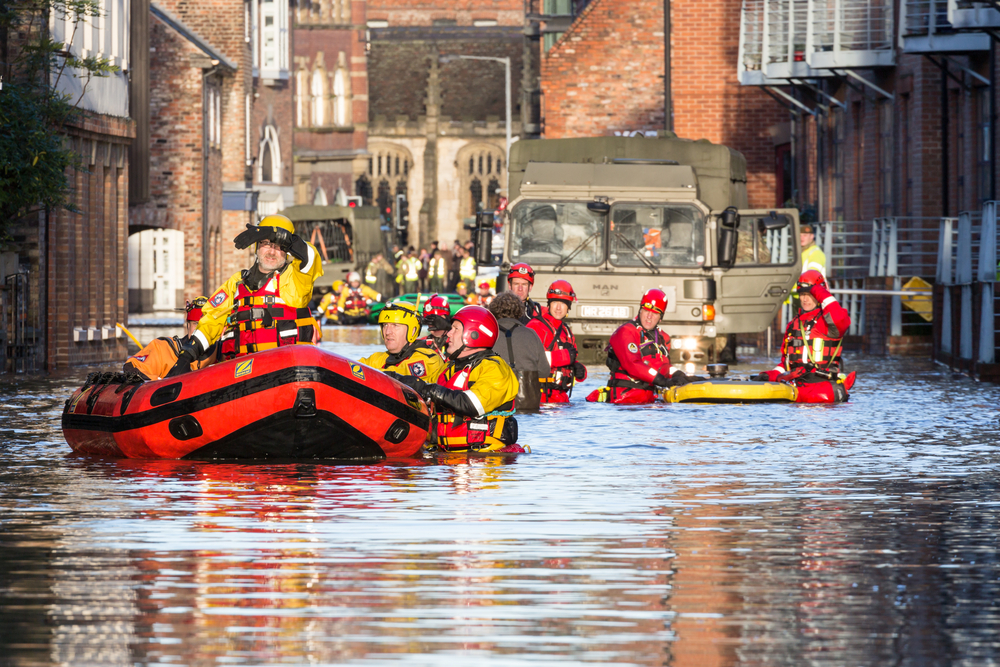In the UK, the most common natural disasters are typically flooding and severe storms, which can cause significant damage to properties. Marketing director at Swinton Insurance, Anne Kirk, shares her advice on what most home insurance policies cover. What natural disaster is most likely to affect me? Floods are the most common form of natural […]
 In the UK, the most common natural disasters are typically flooding and severe storms, which can cause significant damage to properties. Marketing director at Swinton Insurance, Anne Kirk, shares her advice on what most home insurance policies cover.
In the UK, the most common natural disasters are typically flooding and severe storms, which can cause significant damage to properties. Marketing director at Swinton Insurance, Anne Kirk, shares her advice on what most home insurance policies cover.
What natural disaster is most likely to affect me?
Floods are the most common form of natural disasters in the UK, with average insurance claims topping £50,000.
Although you can help to avoid flood damage, it’s always wise to check you have the right type of insurance policy to suit your needs.
What do most home insurance policies cover?
Most buildings and contents insurance policies will protect your home and contents for damage caused by:
- Fire
- Floods
- Storms and hurricanes
- Earthquakes tremors
- Falling trees
Events caused by other natural disasters
While flooding has been in the news a lot recently, other natural disasters such as earthquakes are unusual, but not unheard of in the UK.
We also occasionally see hurricane-like storm conditions that can cause coastal flooding due to temporary high sea levels.
If you do live in a high flood-risk area, you may need to choose specialist flood insurance. If you’re in one of the highest-risk areas, you may be eligible for a policy under the Flood Re scheme, which was launched to help keep insurance affordable by those most affected by flooding.
Flood insurance is usually included as part of your buildings insurance as standard, but it won’t cover your possessions unless you also have a home contents insurance policy. Make sure that you double check all the details in both your buildings and contents insurance policies, to make sure you have enough cover to protect you in a flood.
Top tips on how to avoid flood damage
Check if your home is at risk
On the Environment Agency website, you can enter your postcode to check if your home is at risk of flooding from nearby rivers, the sea, surface water, or even reservoirs. The site also gives your home a flood risk rating of high, medium, low or very low. Similar information is available from the Scottish Environment Protection Agency and National Resources Wales, for homeowners in Scotland and Wales
Prepare in advance
- Locate your main stopcock – the large tap normally found under or near your sink – make sure it’s easy to get to, and that it works.
- Consider using tiles rather than carpets, or wooden flooring in ground-floor or basement rooms.
- Consider installing waterproof linings in basements to prevent water getting in.
- Speak to your local authority for advice on what flood prevention methods they’d recommend to reduce the specific risks affecting your area.
- Save receipts or photographs of receipts for any valuable items, if possible. If you ever need to make an insurance claim, these will make the process much easier. Storing your receipts digitally is also a good idea.
- Keep a copy of your insurance policy documents digitally or with a friend or neighbour – they may not be accessible if filed away at home when a flood hits.
- Have a stock of sandbags ready.
- Put your insurer’s number in your phone.
- Keep a marker pen handy to mark where the flood water comes up to.
If water starts entering your home, or you live in a high-risk area and imminent floods are predicted:
- Move valuable possessions, and especially electrical items, upstairs or to higher areas of your home.
- Do the same with furniture wherever possible.
- Use sandbags to block potential water entry points, like doors on the ground floor and garden gates. Speak to your local authority in advance to find out where you can get access to sandbags. There may be a charge for this service.
- Take down any low-hanging curtains, or fold them over the rail to keep them away from the water.
- During flooding, drains can stop flowing which means sewage could make its way back up into your sinks, toilets and bath, so put plugs in where you can and use something weighty to keep them in place.
- Try to stay away from flood water itself as it may be contaminated with sewage, animal waste, harmful bacteria or chemicals, and be potentially damaging to your health. If you do come into contact with it, thoroughly wash your hands with clean water as soon as possible, especially before preparing food.
- Be aware that flood water can also sometimes contaminate drinking water, so avoid using it until you’re advised it is safe.














